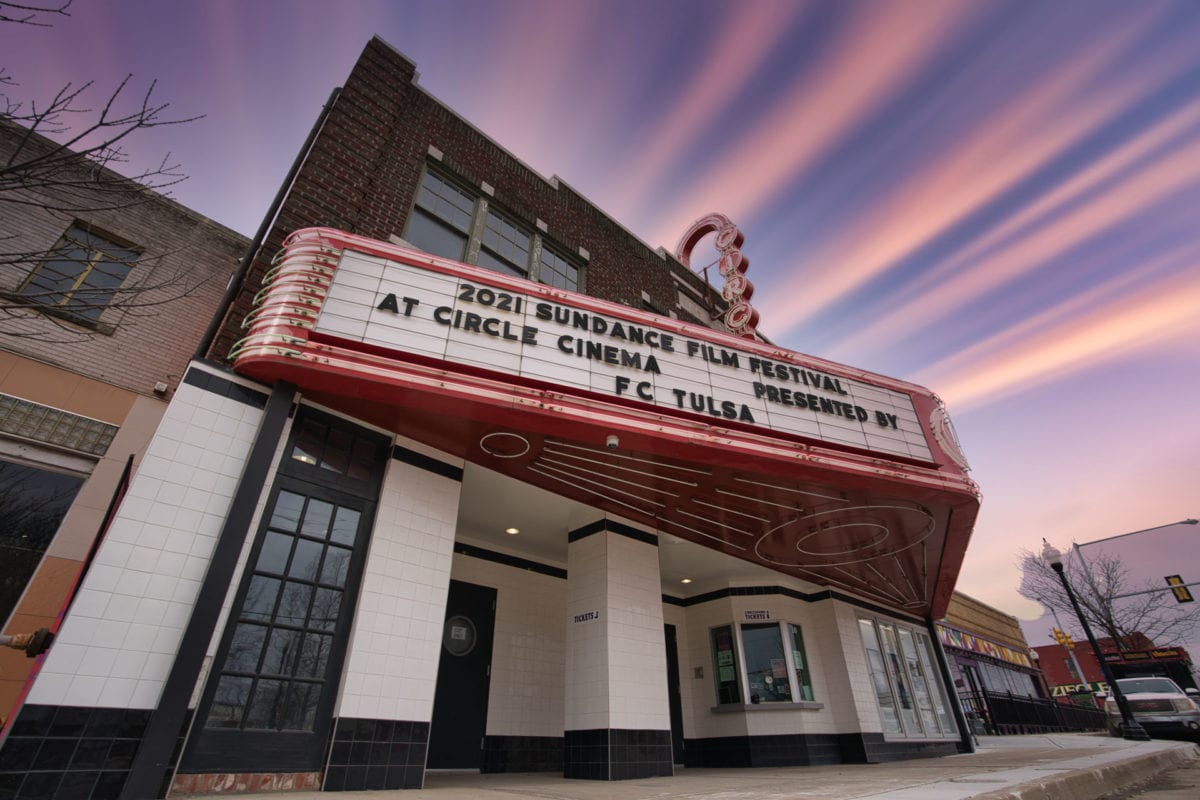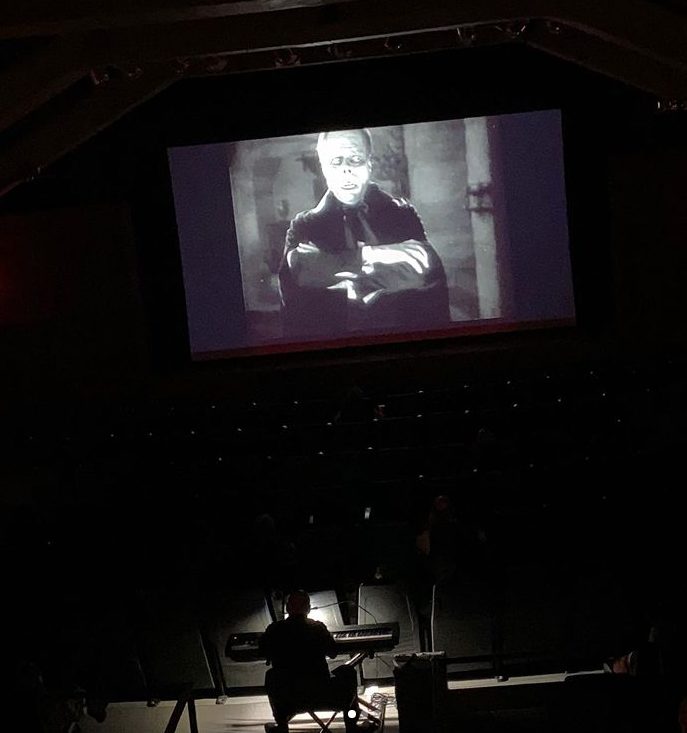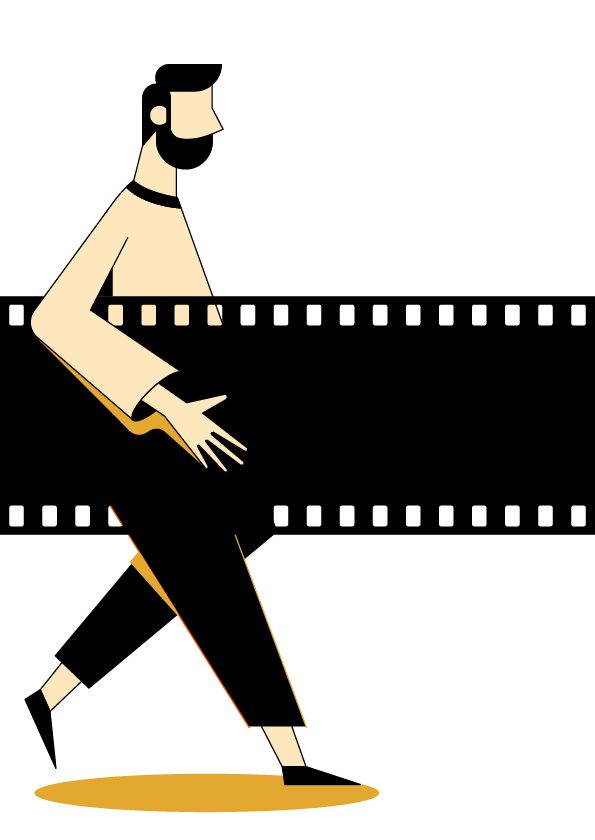The Pandemic’s Effect on Small Theaters
COVID-19 has been raging since March of 2020, and the entertainment business as a whole took a large hit. Big chain movie theaters like AMC and Cinemark closed their doors temporarily, but it was the smaller venues that perhaps struggled the hardest.
Circle Cinema and Rodeo Cinema, two independent theaters out of Tulsa and OKC respectively, thought outside the box to curb the blow.
“We offered curbside popcorn and concession orders for people to enjoy while they watched at home,” says Ryan Thomas, communications manager at Circle. “We also rented out our marquee for personalized messages. The response was so great that we’ve continued the program even after re-opening.”
To keep film alive, Rodeo got creative. Leadership installed an organ for a new silent film series, as well as a projector for lobby shows.
“We later started doing midnight movies,” says Sean Peel, Rodeo’s theater manager. “At the beginning, our attendance was obviously lower than it had ever been,” he says, but this allowed them “much more personal, one-one interaction” with those who did come in.
Moving forward, both theaters have big plans to keep the excitement alive. Rodeo will expand to a second location in downtown OKC on Film Row, and they hope to bring back live music and add stage productions. Circle will return the popular outdoor screenings for “drive-in style shows and open air seating,” according to Thomas.
Regardless of hardships, Peel summarizes it best: “Rodeo Cinema plans to be around for a long time to come!”
The
Future
Of Film
Last year, theatrical releases took a massive backseat. Numerous movies were shown online only, if at all, and streaming content was king. The way people consumed media shifted to fit the new normal.
“Historically, entertainment has been what most humans turn to for comfort during any crisis, so the pandemic was no different,” says Tava Sofsky, director of the Oklahoma Film and Music Office.
A variety of television shows and made-for-online-consumption films have been released over the past year, and there are no signs this trend will stop anytime soon. So what does this mean for movie theaters? Even heavy hitters like the aforementioned AMC and Cinemark took big losses. Are they doomed to lose even more of their audience to the home theater?
“There is always going to be debate about this, but how could you not love both?” asks Sofsky.
As recently seen with the theatrical release of Godzilla vs. Kong, which, as of this writing, has made over $350 million dollars worldwide, people are eager to return to theaters.
“Walking into a beautiful theater with surround sound and experiencing a movie with fans and community is something you can’t replace,” says Sofsky. “Where do we go from here? I think the canvas is blank and the skies are limitless.”
The Details
of Extra Work
For a variety of reasons, more and more films are coming to shoot in Oklahoma. Minari, the Oscar nominated film starring Steven Yeun, was made here in 2019. In 2020, the biopic Reagan, starring Dennis Quaid, filmed in Guthrie. This year, both Killers of the Flower Moon (directed by Martin Scorsese) and Reservation Dogs (a TV show created by Taika Waititi and Oklahoman Sterlin Harjo) are being made in the state.
These movies and shows are always looking for extras and stand-ins, but a lot of people have no idea how to get involved. Generally speaking, the casting department sends out a list of what they need to local casting agencies, which then send emails out to potential actors. If you want to get involved and have your five minutes of quasi-fame, follow Freihofer Casting or other local casting agencies. They have email blasts you can subscribe to and they give detailed instructions on what to send. You can also follow them on social media, where they’ll give out the same particulars.
For extra roles, they usually don’t require a resume or professional headshot, but if you’re looking at auditioning for named characters with lines, you might consider putting both of those on your to-do list.
Jobs Within
the Industry
A film set has a tremendous amount of moving parts, but we’ll outline a few main players.
Obviously, the director runs the show, tells actors what he or she wants from their performances, and generally has final say on issues.
The writer(s) aren’t usually on set, but without the script, the film wouldn’t be happening. So, although their contribution is over before filming begins, their value is unmatched.
Producers do pre-production planning. They’re involved with locations, finances and finding the script/director/crew members, among many other duties.
Finally, the editor is the one who puts all the filmed shots together in a coherent way to form the final product. Finding a rhythm that works in tandem with the story is paramount to a successful film.
Film Production
There are quite a few production companies right here in Oklahoma, so if you need some professional work done, the options are plentiful.
Retrospec Films, located in Broken Arrow, has a background in training videos, music videos and narrative films. Video405, located off Film Row in OKC, has done extensive work in commercials for cooperate, non-profit and online media. 1577 Productions, also out of OKC, has done commercial work mixed with a slew of documentary films. Finally, Blue House Media, located in Tulsa, does commercials as well as providing audio services for jingles, musical artists and radio.

























